Search
Did you mean: Byzantium?
Search Results
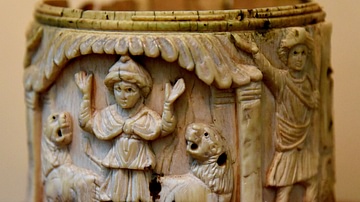
Image
Byzantine Ivory Pyxis
This pyxis once had a lockable lid and was perhaps used to hold sacramental bread. Its carvings refer to the Biblical tale of Daniel in the lions' den. Byzantine, 5th or early 6th century CE. From modern-day Egypt or Syria. (The British Museum...

Image
Byzantine Gold Body Chain
This body chains of linked medallions is the largest item of jewellery to survive from the Byzantine Empire. It would have been worn draped over the shoulders and around the hips. In Greek and Roman art, body chains were often associated...
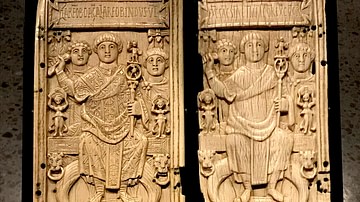
Image
Byzantine Diptych of Ivory
Diptych (two-part writing tablet), ivory. c. 506 CE. From the collection of the Zurich historian J. H. Hottinger (1620-1667 CE). The man on the throne was called Areobindus. He is shown giving the signal to begin the animal combat depicted...
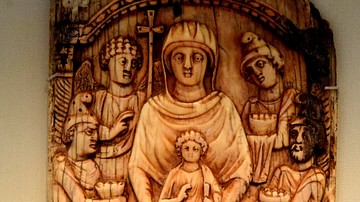
Image
Byzantine Ivory Panel Depicting the Adoration of the Magi
The Virgin, in the center, sits and holds the child Christ in her lap. To the left behind her right shoulder, an angel carries a cross-staff. The 3 Magi (dressed in trousers, chlamyses and Phrygian caps) present their offerings with veiled...

Image
Byzantine Marriage Ring
This Byzantine gold marriage ring dates to the 3rd to 4th centuries CE. The ring measures 56 mm in circumference and the bezel measures 10x10 mm. Weight: 4.5 grams. (Metropolitan Museum, New York)
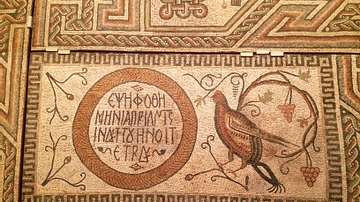
Image
Byzantine Floor Mosaic from Eastern Mediterranean
This exceptional mosaic likely comes from the floor of a house or public building. It reflects the Late Romand and Early Byzantine taste for intricate and colorful designs. It dates from c. 325-350 CE and is made of limestone tesserae. The...
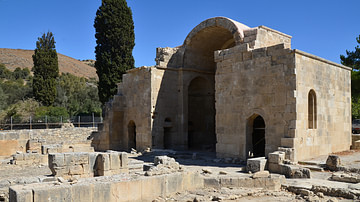
Image
Byzantine Church in Gortyn
The 6th-century Byzantine church in Gortyn (Crete), dedicated to St. Titus (Hagios Titos), the first Bishop of Crete, appointed by Paul the Apostle and martyred at the site.
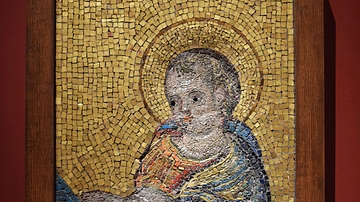
Image
Byzantine Mosaic of Christ Child
This mosaic of Jesus Christ as a child is rendered in Byzantine style and made by Jacopo Torriti (or "Turriti"). Torriti was an Italian painter and mosaic-maker during the late 13th century CE. He lived and worked in Rome, Italy. (Pushkin...
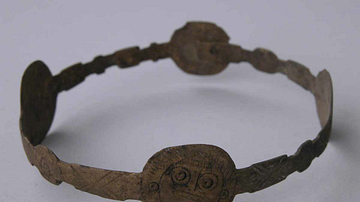
Image
Byzantine Copper-Alloy Bracelet
Crafted sometime between the 6th-8th centuries CE, this bracelet comprises four linked medallions. Decorations include concentric geometric figures (very popular in Byzantine art), along with a woman's face, a fish, a boat and an inscription...
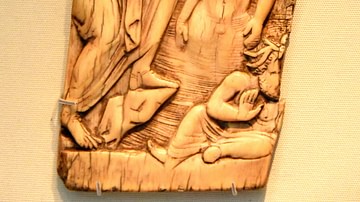
Image
Byzantine Ivory Panel Depicting the Baptisim
A figure of the young Christ stands full-face up to the waist in water. To the left, St. John, the Baptist, stands and leans forward upon a rock. One of his hands rests upon Christ's head. At the upper part of the panel, the hand of God appears...